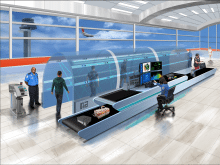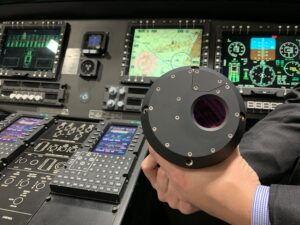
The Department of Homeland Security’s (DHS) Science and Technology (S&T) Directorate and the Transportation Security Administration (TSA) are working together on a new strategic initiative aimed at increasing security at aviation checkpoints while making the traveler’s experience easier and more convenient.The ultimate desire is for checkpoints--in aviation and other transportation systems--to move away from the current standalone screening systems to more integrated suites that can adjust detection capabilities based on risk levels.“Knowing that terrorists will seek out new ways to…

 By
By 











